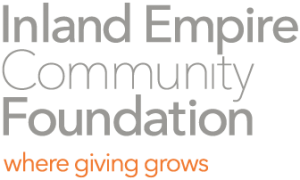October is Domestic Violence Awareness Month. IECF is a proud supporter of House of Ruth, a nonprofit organization dedicated to the prevention of domestic violence and to ensuring the safety and well-being of those impacted by it. The Claremont-based organization has been providing life-saving domestic violence services for residents of eastern Los Angeles and western San Bernardino counties since 1977.
Participation in their programming is open to all battered women, men, and their children at no charge. House of Ruth is a past recipient of funding through IECF’s Women’s Giving Fund, which uplifts women and their families in the IE through collaborative philanthropy.
Domestic violence affects one in three women and one in four men in the United States, with intense and long-lasting consequences that can create a cycle of abuse lasting for generations.
Prevention of domestic violence is possible, and it’s the best way to reduce these alarming statistics. You can be a part of the solution. CDC offers these strategies for the prevention of domestic violence:
- Support survivors to increase safety and lessen harms
- Teach safe and healthy relationship skills
- Engage influential adults and peers
- Strengthen economic supports for families
- Create protective environments
- Disrupt developmental pathways toward partner violence
If you know someone who is in an abusive relationship, you can help by following these recommendations from Blueshield Foundation:
- Use your voice. The silence around domestic violence makes it harder for survivors to get the help they need. By starting the conversation with your friends, family, and neighbors, you can help end the silence.
- Get involved. Contact your local domestic violence organization or shelter and ask how you can help in your community.
- Be an advocate. Learn the warning signs, and if someone you know needs help, refer them to a local organization. Remember, not everyone will need the same type of support—whether they are ready to leave the relationship or not, let them know they’re not alone. Also check out how to identify and intervene in teen dating violence.
- Survivor Support. Find information about seeking professional help, finding housing, legal assistance, and free or low-cost resources.
- Donate/Volunteer. Whether it’s through financial support or volunteering your time, you can help your local domestic violence organization. And you’ll know where to refer someone if you ever need to.
- Get informed. The National Domestic Violence Hotline is available 24/7 at 1-800-799-SAFE (7233) or online at www.thehotline.org. The hotline isn’t just for those in crisis—you can call to get resources or information about domestic violence, or just to talk with someone if you’re questioning unhealthy aspects of a relationship—whether it’s yours or a loved one’s. The Hotline’s website also provides in-depth national domestic violence statistics.
We can all play a part in ending domestic violence. Start today by joining the efforts of the Women’s Giving Fund, where you’ll have an opportunity to recommend grantees for our next giving cycle.


